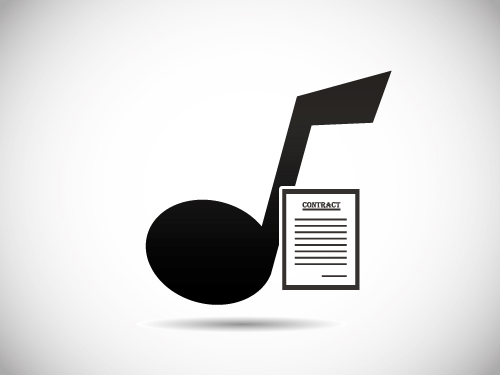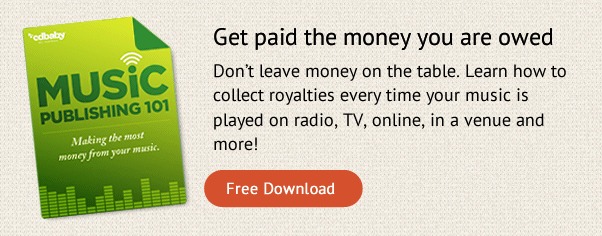Copyright basics of sync licensing
 “Sync licensing” is a buzzword in the music industry, fueled by dreams of big checks and mainstream media play. But once you start looking into it, you discover just how much of a learning curve there is, especially if you’re going at it as an independent artist.
“Sync licensing” is a buzzword in the music industry, fueled by dreams of big checks and mainstream media play. But once you start looking into it, you discover just how much of a learning curve there is, especially if you’re going at it as an independent artist.
If you’re serious about pursuing sync placements for your music, the best place to start is to understand the copyright behind the sync license, so that is what this article is all about.
After you master the copyright side of it, you can take the next step towards getting a sync license for your music by joining this free DIY Music Licensing Workshop. Kevin Breuner from CD Baby and I will be going through tips for getting your music in front of music supervisors, micro sync opportunities for indie musicians, and a whole lot more, so be sure to sign up!
What is a Sync License?
When you write or record music you automatically get copyright protection, meaning you and you alone can use that music unless you give someone else permission. When you allow someone to use your music, you’re giving them a license.
A synchronization license – or sync license – gives someone permission to synchronize your music with some kind of visual medium. This could be anything from TV shows, advertisements, movies, or video games.
Keep in mind though, that when you grant someone a sync license, you are not giving your rights to that song away. You are basically renting the rights to them for that specific use. Since you own the copyright, you can use that song elsewhere or even license it for a different movie or advertisement.
Negotiating Your Sync License
Let’s go a little deeper. There are actually two different kinds of copyright. The “composition” copyright protects the melody and lyrics and is usually owned by the songwriter. The “sound recording” copyright protects the recording of the song and is usually owned by the performing artist (or label). So, if you write and record your songs, you end up with two different copyrights for each song.
What does this have to do with sync licensing? If someone wants to use your song in a movie, they need permission to use both copyrights.
Indie artists sometimes have a distinct advantage. In the case where you own both copyrights – without any label or publisher involvement – sync deals can be pretty straightforward to make.
But when there is another songwriter, perhaps their publisher, a recording artist and maybe their label, a lot more people are involved in the negotiation. If just one of those parties decide they don’t want to grant the license, the song can’t be used.
On top of that, there is no typical or standard payment for a sync license. The rates are negotiated on a per case basis and it will depend on the budget of the production, your clout as an artist and negotiator, and how important it is to have that particular song in the production.
Some artists will license their music for free just to get the exposure (though we wouldn’t recommend that), while other artists get tens of thousands of dollars for a single sync license. There is a lot of art to the negotiation for a sync deal, which we will explore more in the free DIY Music Licensing Workshop.
—-
Alright, now that you have a basic understanding of what a sync is all about, it’s time to learn more about actually finding placements for your music in movies, TV, games, and YouTube. Join CD Baby’s Kevin Breuner and I in a free DIY Music Licensing Workshop to learn how to break into licensing as an indie artist.
[This article was written by Dave Kusek, founder of the New Artist Model, an online music business school for independent musicians, performers, recording artists, producers, managers, and songwriters. He is also the founder of Berklee Online, co-author of The Future of Music book, and a member of the team who brought midi to the market.]
The post Copyright basics of sync licensing appeared first on DIY Musician Blog.
Source: Musician Resources


Leave a Reply
Want to join the discussion?Feel free to contribute!